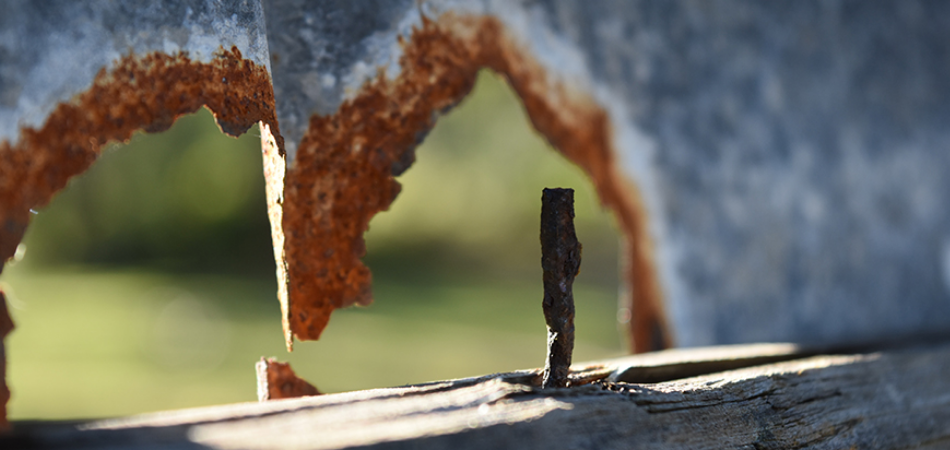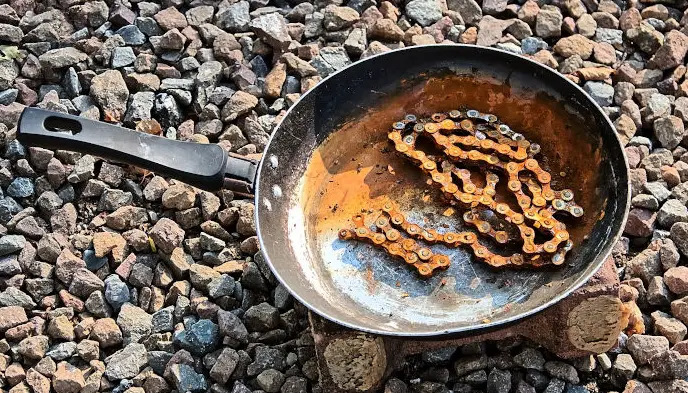If an individual consumes rust, the outcome can be toxic. The person will experience gastrointestinal symptoms, such as nausea and vomiting. In large amounts, rust can cause serious injury to the respiratory tract and lungs. However, can rust kill you?
Yes, rust can kill you. Rust can be a severe threat to our health if we do not eliminate it. It is a chemical compound, and if we ingest even the smallest amount of rust, it could be deadly.
It is essential you know rust itself doesn’t kill, but the contaminants on the surface of rust, such as copper corrosion and tetanus, are the major cause of different kinds of health problems.
To keep yourself safe from tetanus and all other rust contaminants, you need to ensure you get rid of rust from any material or devices you own using paste wax, and you can prevent further rust build-up with oil spray.
As you read further, you will see different ways through which you knowingly and unknowingly consume rust, and will understand if rust consumption through any of these ways can affect your health negatively.
Contents
Does Rust Cause Tetanus?
You will probably remember when you got a tetanus injection after mistakenly stepping on a rusty nail. Tetanus is popularly connected to rust due to the widespread information across various media and people, but the truth is that rust has got nothing to do with tetanus.

Surprised right? Well, Clostridium tetani, the bacterium that causes tetanus dwells in the soil, specifically a soil that is damp and has a fairly high level of organic matter. Remember that if a metallic item gets in contact with moisture and oxygen, like in the soil filled with organic matter, it will rust.
When you get a cut from a piece of rusty metal or mistakenly step on a rusty nail, probably in an environment where the causative agent for tetanus thrives, you will become highly exposed to the bacterium – not because of the rusty nail or metal, but because the environment that caused rust on that item is also the environment where the bacterium might live.
If you get cut or injured by any rusty object, ensure that you get the full dose of the tetanus injection, to protect yourself fully because the disease is always fatal in about 10% of known cases.
Also, if the object that gave you a cut or injury is rust-free and clean, it doesn’t mean that you’re safe and free from tetanus. If the accident occurred in an environment containing soil, there’s a possibility that the bacterium will be living in that soil. To be safe, get the tetanus shot as quickly as possible to avoid the bacterium giving you the tetanus disease.
Ways through Which You Consume Rust

Some of the ways through which humans knowingly or unknowingly consume rust are as follows:
- Having skin contact with rusty dust.
- Using rusty dishes for eating and drinking.
- Drinking brownish rust water.
- Drinking water that rushes through a rusty pipe.
- Accidentally swallowing a tiny bit of metal with rust on it. (This is very unlikely to happen)
- Inhaling rust dust while doing metal works like welding, metal polishing, soldering, etc.
Dangers of Consuming Rust
As surprising as it might seem, consuming rust does not come with any health hazard. Rust which is iron III oxide is still normal iron. If you mistakenly take extremely small quantities into your body, it will be as if you’re adding extra iron and won’t bring any danger as our body naturally produces iron.

This is also applicable to drinking brownish rusty water. Even though the water might smell and look awful, it will not harm you if you don’t have an option but to drink it. The only time you can be harmed from drinking rusty water is when you have hemochromatosis, i.e. if your body absorbs and deposits iron too quickly, then you should probably have a rethink when you want to drink water that contains rust.
In addition, you might have regularly used medical and cosmetic products like calamine lotion (used to stop itching) that contain small quantities of iron III oxide, so you don’t have to be afraid when you mistakenly take in a bit of it through other means.
Also, you might have some household wares like cups, pans, and pots that have little rust on them, and might be afraid of getting poisoned from consuming the rust particles. You do not have any reason to be afraid or worried about getting tetanus while eating with those wares.
Even if there’s any tetanus causative bacterium on the particles of rust that you might have consumed, the hydrochloric acid in your stomach would kill them quickly as soon as they get to your stomach. Therefore, do not worry about ingesting some iron III oxide, it might even turn out to be beneficial to your body.
Note: Even though rust is not harmful to your body system, you should not try to consume it intentionally.
Frequently Asked Questions (FAQs)
Can Rust Cause Siderosis?
Inhaling lots of rust dust can lead to a lung disease known as siderosis (welder’s lung), and that’s why welders, soldiers, and miners are more susceptible to this disease.
Siderosis has no cure, but the early symptoms can be treated. However, it takes a lot of time for the disease to develop fully, and it can be prevented by using protective equipment like masks.
What Can Cleanse Lungs from Rust Dust?
Hot water and honey. When these two drinks are mixed and taken, it detoxifies the body system and helps to fight the effects of pollutants like rust dust.
Other things that can also detoxify the lungs are: turmeric and ginger blended drinks, carrot, beetroot, and apple smoothie, cinnamon water, green tea, etc.
Conclusion
Rust itself cannot kill you if you swallow a food item or water that contains it, but getting injured by an item that contains rust can introduce the tetanus bacteria into your body. If this happens, endeavor to get a tetanus injection as fast as possible, to stop the bacteria from affecting you.

